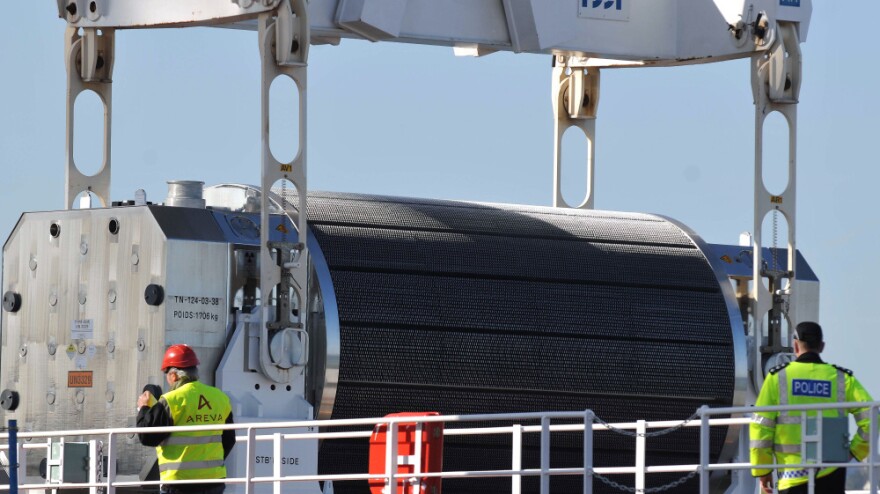Some outside experts are particularly concerned about high levels of plutonium in one of the damaged Japanese reactors. About 6 percent of the fuel rods in reactor No. 3 at the Fukushima Dai-ichi power plant are made from so-called "mixed-oxide" (MOX) fuel, which contains plutonium as well as uranium.
According to the Union of Concerned Scientists, MOX fuel presents particular risks in an accident.
For one thing, it melts at a slightly lower temperature.
In addition, plutonium is a particularly long-lived and toxic material. The half-life of plutonium-239 is 24,000 years, so if it escaped in smoke from a burning reactor and contaminated soil downwind, it would remain hazardous for tens of thousands of years.
But officials at the International Atomic Energy Agency say the presence of MOX fuel does not add significantly to the dangers.
Denis Flory, a top safety official at the agency, pointed out that all used nuclear fuel contains plutonium. It forms naturally within conventional uranium fuel as the uranium is bombarded by neutrons.
And although plutonium is a long-lived emitter of radiation, it is also quite heavy, so it is not likely to move very far downwind from its source.
Copyright 2020 NPR. To see more, visit https://www.npr.org. 9(MDAxNDQ2NDAxMDEyNzU2NzM2ODA3ZGI1ZA001))




